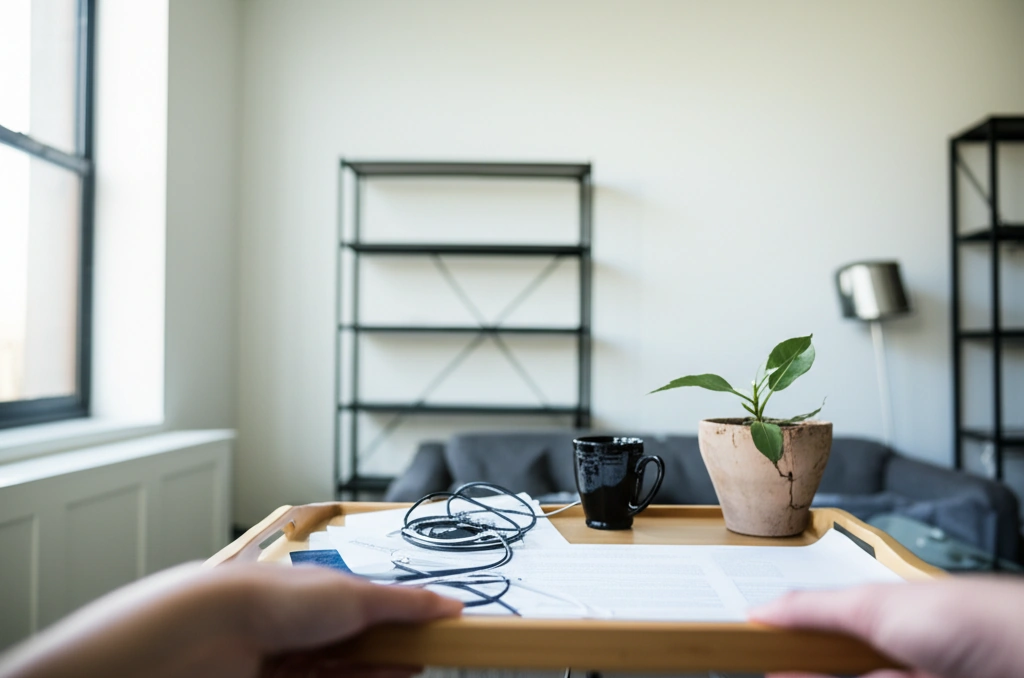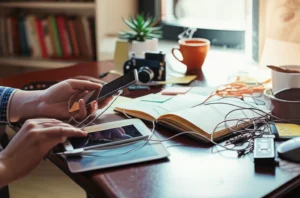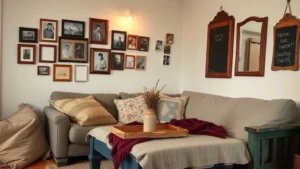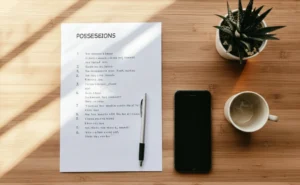Let’s get honest for a second. Minimalism gets hyped up everywhere—turn on YouTube or scroll through Instagram, and someone’s raving about decluttering their home, their closet, their mind… But you know what hardly anyone talks about? The disadvantages of minimalism. If you’ve ever asked yourself, “Is minimalism worth it?” or found yourself curious about the pros and cons of minimalism (and, honestly, the disadvantages of simple life in general), you’re in the right place.
Instead of making you dig through a wall of text for the good stuff, here’s what you need to know:
Minimalism can be inspiring and freeing, but it can also trip you up, leave you feeling isolated, or even create new kinds of stress. I want to talk you through the real downsides—without sugarcoating or pretending there’s just one way to live a “good” life. Ready? Let’s dive in.
Common Downsides
Not everything in minimalism is as soothing as a perfectly curated shelf. Here are five sneaky snags you might face:
- Simplicity can backfire: Owning less can make daily life fragile or stressful if you misjudge what you “really” need.
- Obsession with less: When “decluttering” morphs into anxiety, guilt, or even perfectionism.
- Relationship friction: Minimalism can clash with how friends, family, or partners live—or how they view gifts and sharing.
- Loss of self-expression: Sometimes, minimalism whitewashes personality or hides complex emotions under “aesthetics.”
- Not one-size-fits-all: It doesn’t fit every income, culture, or life stage, no matter what the blogs say.
Simplicity Can Backfire
Ever found yourself shoving all your favorite things into a backpack, moving somewhere new, and swearing it’ll be easy? (Been there, done that!) On paper, the idea sounds great: what’s left is what matters, right?
But here’s the thing—sometimes “owning less” just means… less. Fewer tools to fix things, fewer backup outfits when a shirt gets ruined, less flexibility when plans change, or you suddenly need something you donated in a burst of inspiration. Minimalism makes you more vulnerable to small mishaps—like my personal nightmare of tossing a “maybe” pile, then realizing I need that item less than a week later. The so-called simplicity can make normal life unexpectedly complicated and time-consuming, especially if you end up making endless replacement purchases, long-haul comparisons, and “quality over quantity” decisions that suck up your time and energy.[source]
If you’ve ever agonized over buying new running shoes or stress-shopped for a missing kitchen tool, you know exactly what I mean. Life keeps changing—sometimes, “just enough” isn’t quite enough.
The Obsession With Less
Confession: I love a good declutter. But sometimes, minimalism can turn into a race—who can own less, count fewer items, or live out of the tiniest suitcase? What starts as intentional living sometimes morphs into a fixation, or worse: an identity. That’s when it becomes stressful, not freeing (see real stories on Reddit).
If every single item on your bookshelf makes you wrack your brain—”Do I need it? Have I read it? Does it spark joy, or just spark guilt?”—it gets overwhelming. Suddenly, your home feels like a math problem or a contest. Minimalism, at its extreme, amplifies insecurity. And if you mess up (hello, buying a new gadget out of turn), there’s guilt, shame, and disappointment.
Honestly, it’s easy to tumble from thoughtful editing to self-imposed pressure. Imagine being afraid to buy a spatula—will that “ruin” your minimalist cred?
Social Friction
Now, let’s talk about people—the unsung challenge of adopting a minimalist lifestyle. Friends might tease you (“Do you even own more than three shirts?”). Family might get annoyed when birthdays roll around—no one wants to feel awkward about gifts. Some folks might even judge you for selling or donating things they gave you—a tough call, emotionally and socially [source].
But it can swing both ways. Let’s be real: sometimes minimalists—especially new converts—get a little judgy, especially at others’ “clutter.” I remember feeling super smug after a big declutter, silently sizing up my best friend’s overflowing closet. Not cool. When your lifestyle becomes your personality, you might start pushing it on everyone around you, thinking you’re saving them, but really just souring the moment.
Finding balance here is key, just as there’s a balance between minimalism and other approaches. Curious about the other end of the spectrum? Check out the pros and cons of maximalism for a refreshing counterpoint to today’s “less is more” mantra.
Aesthetics Without Ethics
Here’s something a lot of people gloss over: just because something looks beautifully simple, doesn’t mean it’s automatically ethical, sustainable, or fair. Plenty of minimalist “must-haves” are made under less-than-ideal conditions. A pristine white T-shirt is great… unless it took 1000 gallons of water and unfair labor to make it.
Sometimes, the minimalist look gets used as a cover for a different form of status-chasing—chasing “the perfect thing” again and again. How many times have you tossed a perfectly good mug because you bought another that matches your “aesthetic”? At its worst, minimalism can morph back into quiet consumerism, just with a different vibe.
Be gentle with yourself. There’s no gold medal for the smallest shoe rack, but there’s a real impact when purchases align with your ethics—the best minimalism is mindful, not mindless.
Loss Of Self-Expression
Ever step into someone’s ultra-minimalist space and feel… nothing? No color, no mementos, just empty surfaces and a single plant braving it out in the corner? For some, minimalism kills the moments, objects, and even clutter that makes us, well, us. I still regret giving away a box of old letters years ago—living light meant losing a tiny piece of my history.
When we strip everything down to what’s efficient or “necessary,” we risk erasing personality, family lore, and even creative inspiration. Your stuff—whether it’s a kid’s hand-scribbled birthday card or a weird old lamp—might actually tell your story. Going full minimalist can sometimes mean missing out on emotional richness. If you feel joy from decorated walls or eclectic bookshelves, don’t banish them to meet some online ideal, okay?
It’s Not For Everyone
If only minimalism came with warning labels! The truth is, it’s not a universal fix. In fact, some minimalists admit it can bring unexpected financial headaches. Simplifying your life assumes you’ve got the means to replace things quickly, buy “quality over quantity,” or that your budget isn’t already stretched. If your margins are thin or you’re living with debt, letting go can sting. Repurchasing an essential hurts a lot more when there’s no extra cash—no matter what the decluttering books say.
And for families, especially with different tastes or kids? It’s a negotiation, not an edict. “Let’s all share one spatula!” doesn’t really work when three people want pancakes at once. Choosing minimalism isn’t as simple or automatic as it might look on Pinterest.
If you want to see the sunny side, check out the minimalist lifestyle benefits—because, yes, there’s another side to this coin too.
Annoying Everyday Problems
If you’ve ever tried hosting guests in a “just the essentials” home, you know—no spare pillows, extra mugs, or cozy throws can leave people feeling less than welcome. Got kids? Minimalist living means constant negotiation when they want more toys, or you wish for just a bit of “backup” clutter to keep things easy. Want to tackle a new hobby? Minimalism can make it tricky to try, experiment, or grow. And don’t get me started about emergencies—the urge to ditch “extras” can backfire when you need a flashlight and, oops, it was decluttered last month.
Day-to-day, life throws curveballs that a hyper-minimalist space just isn’t ready to handle.
Finding Your Balance
Look, if you’re asking, “Is minimalism worth it?”—my honest answer is that it depends on you. Minimalism is a tool, not a mandatory religion. It might fit your life in one season, then not in the next. You can go “selective”—edit and keep what matters, toss only what truly crowds your space and mind. It can be about paring down your closet, but keeping your grandma’s quilt. Or choosing to minimize in work but not in hobbies.
No rules, just what helps you thrive. Ironically, the “secret” to happy minimalism is imperfection. Let your home, habits, and routines change as your life does. If you find yourself anxious about your things or unable to enjoy what’s left, that’s a clue: the balance might be off.
| Question | Who Might Benefit? | Who Should Avoid? |
|---|---|---|
| Do you love simple spaces? | People seeking calm or focus | If you thrive on color, history, mementos |
| Is your budget tight? | Selective minimalists (declutter free stuff, keep essentials) | Anyone relying on frequent “replace as needed” promises |
| Are you a parent? | Families embracing teamwork and experimentation | Those needing lots of backups and spares |
| Do you need flexibility? | Digital nomads, city dwellers | Hobbyists, crafters, hosts |
Practical Tips To Avoid The Pitfalls
Here’s the pep talk—minimalism isn’t about “doing less” for the sake of it. The goal is to clear space for what matters, and that “what” is wildly different for everyone.
- Start slow: Test out minimalism in one zone—your desk, your phone, your sock drawer. Let yourself keep “maybes.”
- Communicate: Let family and friends know what you’re doing and why. Set boundaries, but don’t judge their choices.
- Question your motives: Are you decluttering because you want a magazine-perfect home, or because you crave calm? One leads to pressure, the other to peace.
- Keep self-expression alive: Leave room for souvenirs, love notes, goofy mugs—whatever gives your life texture.
- Value flexibility: Don’t purge what you might need in an emergency or a pinch—essentials are personal.
- Mix approaches: The “pros and cons of maximalism” are real, and sometimes borrowing a little from both worlds gives you the best of both pros and cons of maximalism.
Conclusion
Minimalism has its undeniable draws—focus, clarity, sometimes even relief. But let’s not kid ourselves: the disadvantages of minimalism deserve airtime too. If you’ve read this far, you care about crafting a life that’s both meaningful and, well, doable. Maybe you’ll find the minimalist sweet spot, or maybe you’ll zig-zag through seasons of more and less, keeping what serves you and gently releasing the rest. That’s perfectly okay.
So, what do you think? Ever felt blindsided by a minimalist “rule” or accidentally made your life harder by having less? I’d love to hear your thoughts and stories. We’re all just figuring it out together—and that’s the real magic. If this got you thinking or helped you feel seen, keep exploring, keep questioning, and remember: your life, your rules, your version of “enough.”









